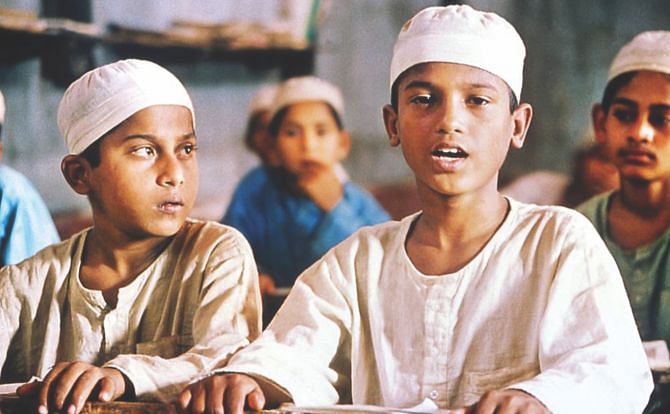Tareque Masud, filmmaker extraordinaire
Tareque Masud, filmmaker extraordinaire

On this day in 2011, the film fraternity of Bangladesh was shell-shocked by the news of filmmaker Tareque Masud's untimely death. Masud, along with cinematographer Mishuk Munier were killed in a road accident, as they were returning to Dhaka from Manikganj after finalising the shooting location of Masud's next venture “Kagojer Phool”.
Masud was among the brightest filmmakers of Bangladesh. As an independent filmmaker, he stood out from the crowd and set the stage for a new era of filmmaking. He looked deeper into his subjects and began a sophisticated film movement, a dire necessity against the declining standards of our film industry. Masud's greatest strength was that he made socially relevant films which viewers could relate to.
His notable productions include “Sonar Beri” (1985), “Adom Surat”(1989), “Muktir Gaan” (1995), “Muktir Kotha” (1999), “Matir Moyna” (2002), “Ontarjatra” (2006), “Runway” (2010) and the unfinished project “Kagojer Phool” (2011).
Masud was the first Bangladeshi director to receive the Critics Award at the Cannes Film Festival. His “Matir Moyna” (“Clay Bird”) received the International Critics' Award (Fipresci) for its “authentic, moving and delicate portrayal of a country struggling for its democratic rights” at Cannes 2002. In the film, Masud shed light on the complexities and diversities of life in Bangladesh, along with its conservative religious norms and its impact on common people.
Masud was born in 1956 at Nurpur village under Bhanga upazila in Faridpur. He began his education in a madrasa but the outbreak of Liberation War in 1971 put an end to his education. Following the country's independence, he did his Honours and Master's in History from the University of Dhaka.
Masud became involved with the film movement in his university days. In 1982, he began shooting his first project “Adom Surat” (“The Inner Strength”), a documentary on celebrated Bangladeshi artist SM Sultan and finished shooting it in 1989. Meanwhile he had completed his first project “Sonar Beri”, a film on the oppressed condition of women in Bangladesh.
His documentary “Muktir Gaan” (The Song of Freedom) was released in 1995. Tareque Masud and his wife Catherine Masud made the film using original footage by American film-maker Lear Levin. Masud discovered the footage in the basement of Lear Levin's house in New York. Later he made
another documentary in the series, titled “Muktir Kotha”.
His first full-length feature film “Matir Moyna” was released in 2002 and brought him recognition as an outstanding filmmaker. The film contains biographical elements of Masud's life. “Matir Moyna” tells the struggle of a nation struggling to establish its democratic rights on a broader canvas, while depicting the influence of religious beliefs on a family during the country's pre-liberation era. In the film, a boy is sent to a madrasa by his rigid conservative father despite his mother's apprehensions (like Masud himself was, as a child). Masud and his wife Catherine jointly wrote the script and co-edited the film which Catherine produced, and the couple invested all their savings in making it.
Masud is not only a filmmaker who has taken Bangla cinema to the global stage, but also a powerful songwriter. He wrote the songs for his films “Matir Moyna”, “Runway” and “Ontarjatra”. Throughout his life, Tareque Masud promoted Bangla cinema and established a distinct style of his own, and continues to inspire aspiring filmmakers.